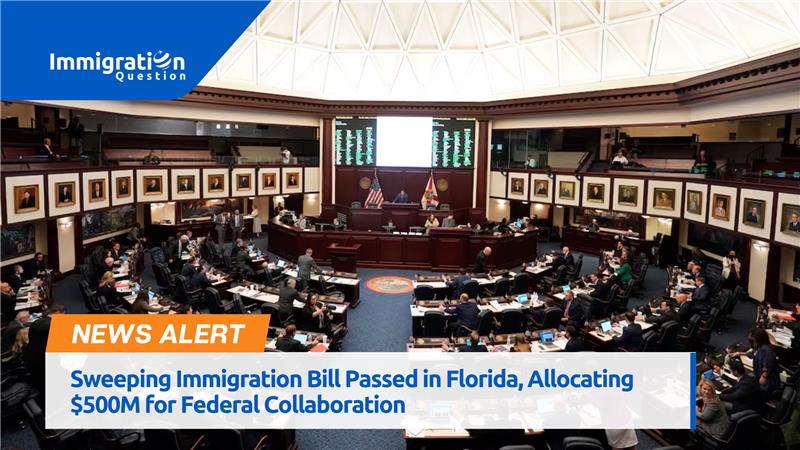Florida lawmakers have approved a sweeping immigration bill aimed at bolstering cooperation with federal immigration enforcement and supporting President Donald Trump’s crackdown on undocumented immigrants. The legislation allocates significant state resources, including over $500 million to facilitate these efforts, emphasizing coordination between local and federal authorities.
Legislative Highlights and Controversies
The bill, titled the Tackling and Reforming Unlawful Migration Policy (TRUMP Act), passed after a partisan debate in Florida’s Republican-majority Legislature. It requires all levels of government and contractors to collaborate with federal immigration enforcement to the fullest extent. While some Republican lawmakers, including Governor Ron DeSantis, criticized the measure for not being stringent enough, others supported it as a meaningful step toward achieving Trump’s immigration agenda.
Notably, the legislation introduces severe penalties for crimes committed by undocumented individuals, including mandating the death penalty for capital offenses. It also repeals a decade-old law that allowed undocumented students to pay in-state tuition, impacting thousands of students who had previously benefited.
Budget Allocation and New Measures
The bill creates a state immigration enforcement office with over 140 staff members under a newly appointed chief immigration officer, a role assigned to the state’s agriculture commissioner. It also designates $375 million for federal-state immigration collaboration, including deputizing local law enforcement to perform federal immigration duties. Additionally, $100 million is set aside for grants to local law enforcement for training and detention facility costs, with $25 million allocated for bonuses to officers cooperating with federal authorities.
Criticism and Concerns
Democratic lawmakers have raised concerns about vague provisions requiring full cooperation with federal immigration enforcement, suggesting this could place undue burdens on government employees, including school resource officers and teachers. Critics also argued that the bill undermines community trust and places Florida students at a disadvantage by removing access to in-state tuition.
Governor DeSantis has expressed skepticism about the provision granting immigration oversight to the state’s agriculture commissioner, highlighting potential conflicts given the agricultural industry’s historical reliance on immigrant labor. He must now decide whether to sign the bill, veto it, or allow it to become law without his signature.
Looking Ahead – Sweeping Immigration Bill Passed in Florida, Allocating $500M for Federal Collaboration
The passage of this legislation positions Florida as a key player in implementing Trump’s immigration policies, reflecting broader national debates on immigration reform. As other states, such as Tennessee, pursue similar measures, Florida’s approach will likely influence ongoing discussions about state and federal responsibilities in immigration enforcement. The coming weeks will reveal Governor DeSantis’ decision and its implications for Florida’s immigration landscape.
To stay updated and informed, watch our news section or drop your immigration queries on immigrationquestion.com and get responses from professional attorneys.










